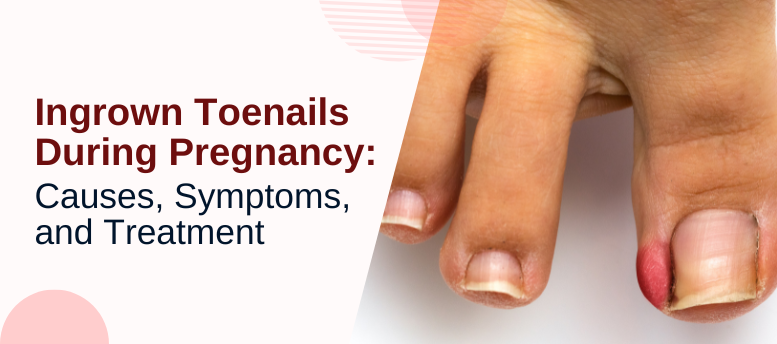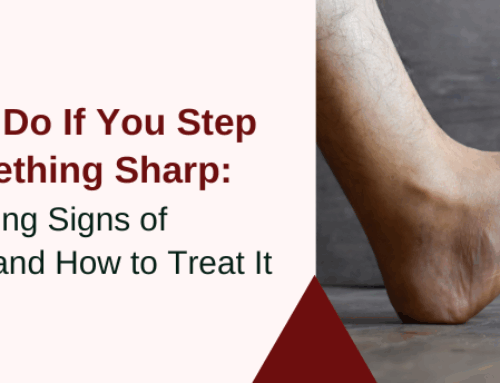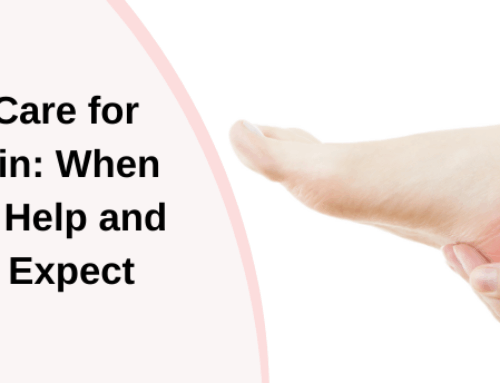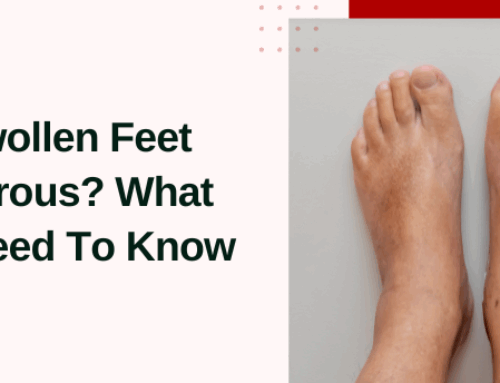Pregnancy brings many changes to the body, and your feet are no exception. One common and often overlooked issue is ingrown toenails. While not typically dangerous, ingrown toenails can become extremely uncomfortable or even lead to infection if left untreated, especially for expectant mothers. This blog explores the causes, symptoms, and safe treatment options for dealing with ingrown toenails during pregnancy, and when it’s time to seek help from a foot care specialist.
What Causes Ingrown Toenails During Pregnancy?
Ingrown toenails occur when the edge of a toenail grows into the surrounding skin, often resulting in pain, swelling, and occasionally infection. Pregnant women are particularly vulnerable due to:
- Swelling in the feet (edema)
- Pressure from weight gain
- Improperly fitting shoes
- Difficulty in trimming nails correctly due to a growing belly
All these factors increase the risk of developing an ingrown toenail, which can cause similar pain and symptoms to those of a minor puncture wound on the foot.
Symptoms of Ingrown Toenails in Pregnant Women
Common symptoms include:
- Tenderness or pain around the edge of the toenail
- Redness or swelling
- Warmth in the affected area
- Pus or fluid drainage (a sign of infection)
If you notice any of these signs, especially if the pain worsens, it’s important to take action. A minor issue can become more serious without proper care, much like foot puncture wound treatment, which is vital to avoid complications.
Hormonal Changes and Foot Health During Pregnancy
Hormonal shifts during pregnancy, especially an increase in relaxin and progesterone, cause joints and ligaments in the body to loosen. This can lead to changes in your gait and foot shape, increasing pressure on the toes. In turn, this makes pregnant women more prone to conditions like ingrown toenails. Additionally, increased blood volume and fluid retention may contribute to swelling, further complicating foot health.
Safe Treatment Options for Ingrown Toenails During Pregnancy
Treating ingrown toenails during pregnancy requires a gentle, non-invasive approach:
- Soak your foot in warm water and Epsom salt to reduce swelling
- Use a clean cotton ball to gently lift the nail edge away from the skin
- Apply an antibiotic ointment and keep the area clean and dry
- Wear comfortable, open-toe shoes to relieve pressure
Avoid over-the-counter medications without consulting your doctor. In some cases, visiting a podiatrist for professional treatment is the safest choice. Clinics like Urgent Care for Feet provide expert, pregnancy-safe care and urgent care for foot injury.
How to Prevent Ingrown Toenails During Pregnancy
Prevention is key. Follow these simple steps:
- Trim nails straight across, not curved
- Avoid tight-fitting or narrow shoes
- Elevate your feet to reduce swelling
- Practice good foot hygiene
These habits not only prevent ingrown toenails but also reduce your risk of other foot issues, such as puncture wounds, by keeping your feet protected and healthy.
When to Seek Medical Attention
If the pain is severe, signs of infection are present, or home treatments don’t work, seek professional help. An infected ingrown toenail during pregnancy can lead to more serious complications if left untreated. Urgent Care for Feet offers specialized care for pregnant women dealing with foot issues, ensuring safe and effective treatment.
Conclusion
Ingrown toenails may seem minor, but during pregnancy, they can cause significant discomfort and complications. Understanding the causes, recognizing the symptoms, and seeking timely treatment are crucial. For expert help with ingrown toenails and all types of foot injuries, trust Urgent Care for Feet in Thousand Oaks, your reliable source for professional foot care, even during pregnancy.




